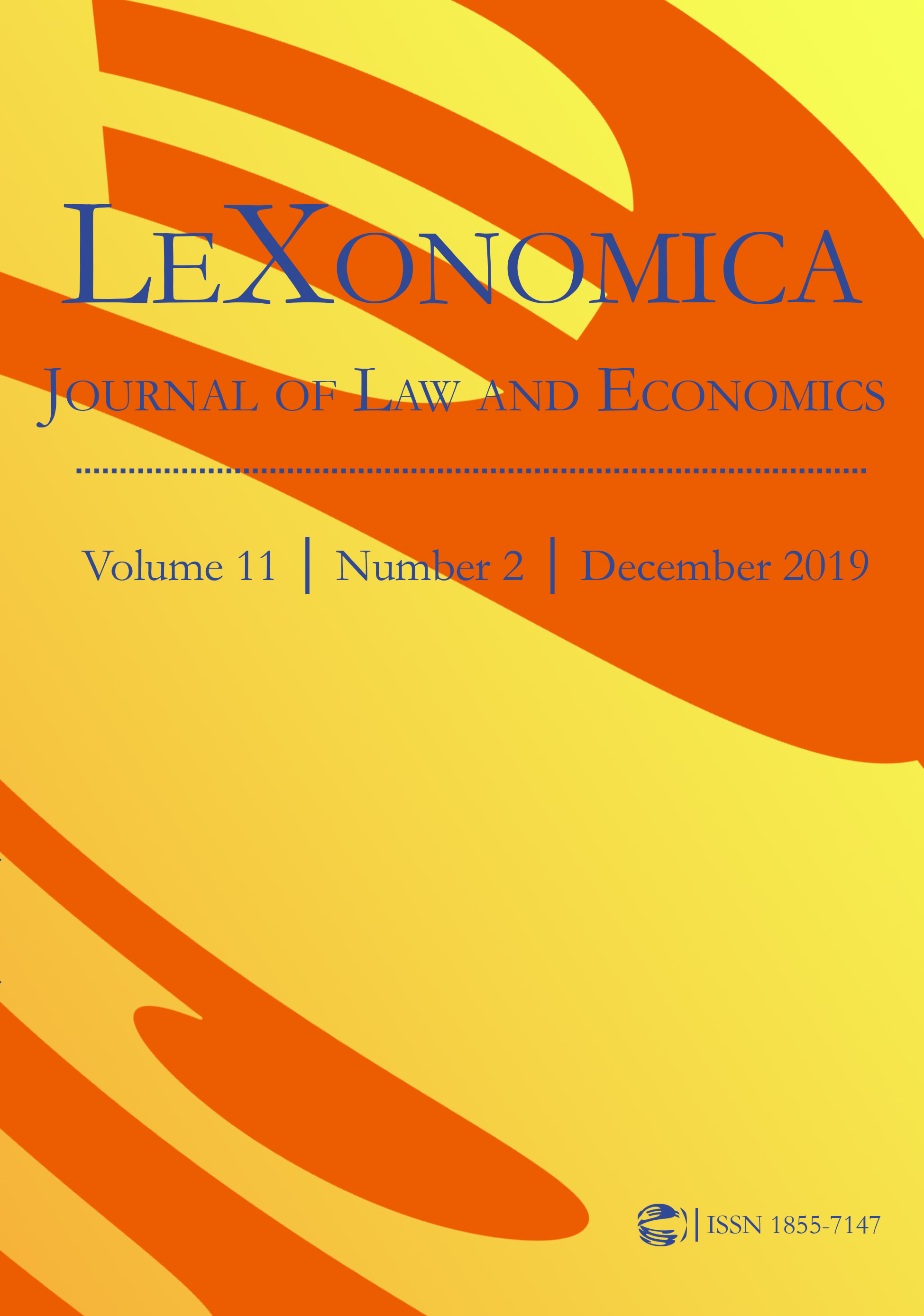The Right to be Forgotten and the Media
DOI:
https://doi.org/10.18690/lexonomica.11.2.195-212.2019Keywords:
the right to be forgotten, freedom of expression and information, case law, conflict, media, media online archives, internet search engines, GDPRAbstract
The right to be forgotten is not the right to a “perfect” past, but provides some control over one's personal information on the Internet under certain conditions. Its content and scope cannot be defined precisely, but its essence is undoubtedly the individual's entitlement, based primarily on the right to respect one's private and family life, to request erasure of personal data or information on the basis of which an individual can be identified against any controller. The right to be forgotten is a legal concept still at the beginning of its development, and case law will have to play a decisive role in shaping its content. An important limitation on the right to be forgotten is the passive aspect of the right to freedom of expression. Therefore, in the case of media contributions, the restriction on the exercise of the right to be forgotten is justified by particularly strong, substantiated reasons. In resolving the conflict between the right to be forgotten and the freedom of media expression, it is necessary to proceed from criteria which, regarding the conflict between Articles 8 and 10 of the ECHR were set up by the ECtHR.
Downloads
References
Bychawska-Siniarska, D. (2017) Protecting the right to freedom of expression under the European Convention on human Rights, A handbook for legal practitioners, (Council of Europe), https://rm.coe.int/handbook-freedom-of-expression-eng/1680732814 (visited 5. 12. 2018).
van Calster, Geert., Apers, E., Gonzalez Arreaza, A. (2017) Not Just One, But Many ‘Rights to Be Forgotten’. A Global Status Quo, https://ssrn.com/abstract=2938969 (visited 5. 12. 2018).
Copper, C. (2011) You've been Googled: what employers don't want to see in your online profile, The Guardian, https://www.theguardian.com/careers/careers-blog/google-online-searches (visited 1. 12. 2018).
Floridi, L., Kauffman, S., Kolucka-Zuk, L., La Rue, F., Leutheusser-Schnarrenberger, S., Piñar, S. L., Valcke, P., Wales J. (2015) Report: The Advisory Council to Google on the Right to be Forgotten, https://static.googleusercontent.com/media/archive.google.com/sl//advisorycouncil/advisement/advisory-report.pdf (visited 28. 11. 2018).
Frantziou, E. (2014) Further Developments in the Right to be Forgotten: the European Court of Justice's Judgement in Case C-131/12, Google Spain, SL, Google Inc v Agencia Espanola de Proteccion De Datos, Human rights Law Review, 14, pp. 761–777.
Guidelines on the implementation of the Court of Justice of the European Union judgment on “Google Spain and inc v. Agency of the Protección de Datos (AEPD) and Mario Costeja González ”C-131/121 (2014) Article 29 Data protection working party, https://ec.europa.eu/justice/article-29/documentation/opinionrecommendation/index_en.htm, (visited on 1. 12. 2018).
Iglezakis, I. (2014) The Case of Case C-131/12: A Clear Victory for Data Protection or an Obstacle to the Internet?, https://ssrn.com/abstract=2472323 (visited on 1. 12. 2018).
Koops, B. (2011) Forgetting Footprints, Shunning Shadows. A Critical Analysis Of The “Right To Be Forgotten” In Big Data Practice, 8: 3 SCRIPTed 229, http://scripted.org/?p=43 (visited on 1. 12. 2018).
Kreča, M. (2017) Right to Forget, Master's Thesis (Faculty of Law, Ljubljana).
Kulk, S., Zuiderveen Borgesius, F. (2014) Google Spain v. González: Did the Court Forget About Freedom of Expression? European Journal of Risk Regulation 4. 9. 2014, https://ssrn.com/abstract=2491486 (visited on 1. 12. 2018).
Matthews, A. (2016) How The Italian Courts Used The Right To Be Forgotten To Put An Expiry Date On The News, The Guardian, https://www.theguardian.com/media/2016/sep/20/how-italian-courts-used-the-right-to-be-forgotten-to-put-an-expiry-date-on-news (visited 29. 11. 2018).
Montelero, A. (2013) The EU Proposal for a General Data Protection Regulation and the Roots of the Right to Be Forgotten, Computer Law & Security Review 29(3), pp. 229–235.
Scorza G. (2016) A ruling by the Italian Supreme Court: News to "expire". Online archives would need to be deleted, L'ESPRESSO, http://espresso.repubblica.it/attualita/2016/07/01/news/a-ruling-by-the-italiansupreme-court-news-do-expire-online-archives-would-need-to-be-deleted-1.275720 (visited 28. 11. 2018).
Spahiu, I. (2015) Between the right to know and the right to forget: looking beyond the Google case, European Journal of Law and Technology 6(2), pp.
Zittrain, J. (2014) Don't Force Google to Forget, The New York Times, https://www.nytimes.com/2014/05/15/opinion/dont-force-google-to-forget.html (visited 3. 12. 2018)
Xue, M., Magno G., Cunha E., Alemida V., Ross, K.W. (2016) The Right to Be Forgotten in the Media, A Data Driven Study, De Gruyter Open, Proceedings on Privacy Enhancing Techologies, 4(1), pp. 389–402.
Downloads
Published
Issue
Section
License
© Univerza v Mariboru, Pravna fakulteta, Univerzitetna založba
Prosti pristop
